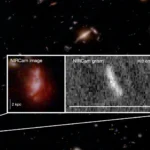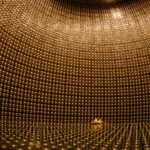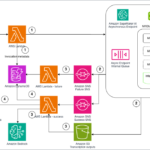As astronomers gather more data than ever before, studying the cosmos has become an increasingly complex task. A new innovation is changing that reality. Researchers have now developed a way to analyze enormous cosmic data sets using only a laptop and a few hours of processing time.
Leading this effort is Dr. Marco Bonici, a postdoctoral researcher at the Waterloo Centre for Astrophysics at the University of Waterloo. Bonici and an international team created Effort.jl, short for EFfective Field theORy surrogate. This tool uses advanced numerical techniques and smart data-preprocessing methods to deliver exceptional computational performance while maintaining the accuracy required in cosmology. The team designed it as a powerful emulator for the Effective Field Theory of Large-Scale Structure (EFTofLSS), allowing researchers to process vast datasets more efficiently than ever before.
Turning Frustration Into Innovation
The idea for Effort.jl emerged from Bonici’s experience running time-consuming computer models. Each time he adjusted even a single parameter, it could take days of extra computation to see the results. That challenge inspired him to build a faster, more flexible solution that could handle such adjustments in hours rather than days.
“Using Effort.jl, we can run through complex data sets on models like EFTofLSS, which have previously needed a lot of time and computer power,” Bonici explained. “With projects like DESI and Euclid expanding our knowledge of the universe and creating even larger astronomical datasets to explore, Effort.jl allows researchers to analyze data faster, inexpensively and multiple times while making small changes based on nuances in the data.”
Smarter Simulations for a Faster Universe
Effort.jl belongs to a class of tools known as emulators. These are trained computational shortcuts that replicate the behavior of large, resource-intensive simulations but run dramatically faster. By using emulators, scientists can explore many possible cosmic scenarios in a fraction of the time and apply advanced techniques such as gradient-based sampling to study intricate physical models with greater efficiency.
“We were able to validate the predictions coming out of Effort.jl by aligning them with those coming out of EFTofLSS,” Bonici said. “The margin of error was small and showed us that the calculations coming out of Effort.jl are strong. Effort.jl can also handle observational quirks like distortions in data and can be customized very easily to the needs of the researcher.”
Human Expertise Still Matters
Despite its impressive capabilities, Effort.jl is not a substitute for scientific understanding. Cosmologists still play a vital role in setting parameters, interpreting results, and applying physical insight to ensure meaningful conclusions. The combination of expert knowledge and computational power is what makes the system so effective.
Looking ahead, Effort.jl is expected to take on even larger cosmological datasets and work alongside other analytical tools. Researchers also see potential for its methods in areas beyond astrophysics, including weather and climate modeling.
The paper, “Effort.jl: a fast and differentiable emulator for the Effective Field Theory of the Large Scale Structure of the Universe,” was published in the Journal of Cosmology and Astroparticle Physics.
Cosmology; Space Exploration; Cosmic Rays; Astrophysics; Computer Modeling; Computer Science; Computers and Internet; Statistics










